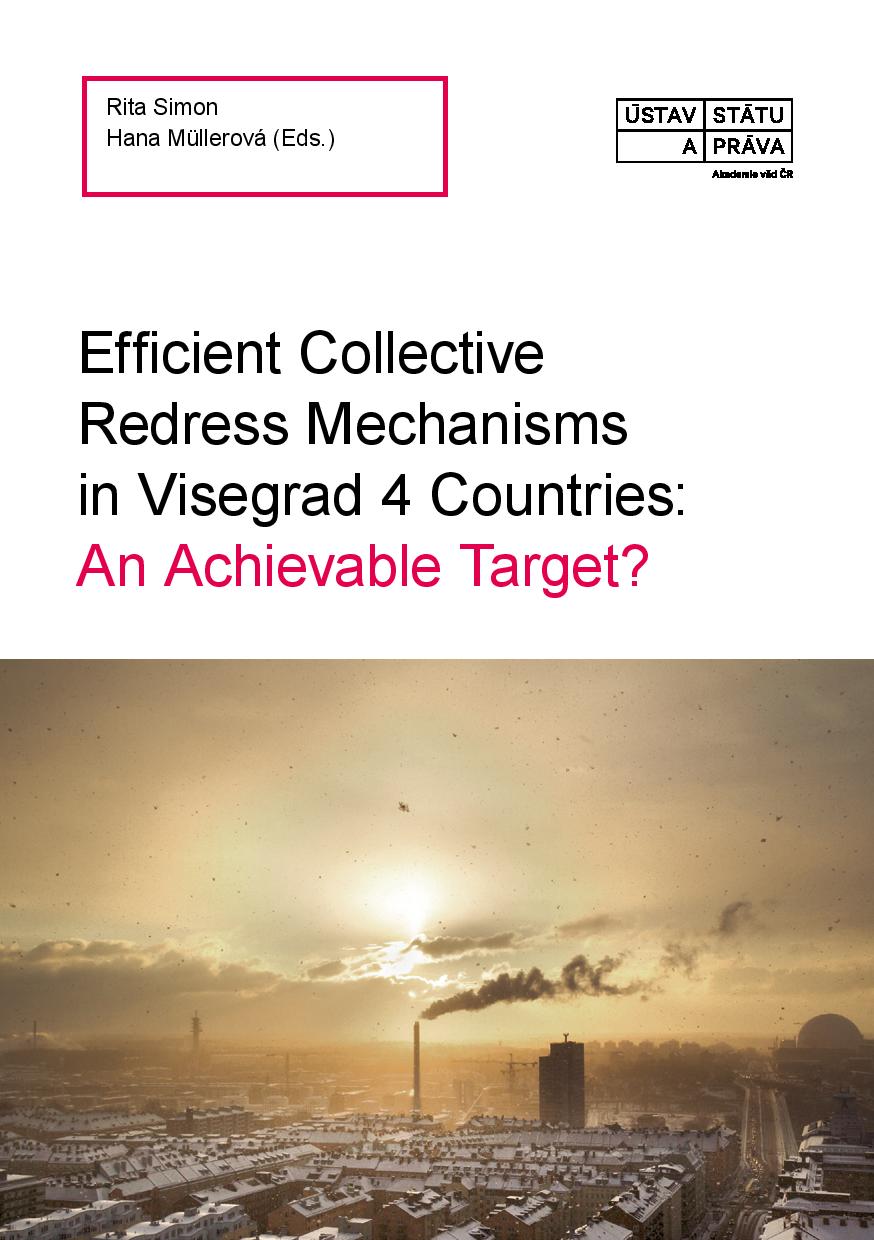About the project
 "Progress in collective redress mechanisms in environmental and consumer mass harm situations" is the project supported by the Visegrad Fund from 1 of February 2018 to 31 of July 2019. Its main research topic deals with introducing and functioning of collective mechanisms of legal redress in mass harm situations or situations of violations of laws in the field of environmental protection and consumer protection. Our project will pay special attention to the role of non-governmental organizations in both the environmental and consumer field. Therefore, representatives of such organizations of all four Visegrad countries are involved. Besides them, also legal experts on environmental law and consumer law are engaged.
"Progress in collective redress mechanisms in environmental and consumer mass harm situations" is the project supported by the Visegrad Fund from 1 of February 2018 to 31 of July 2019. Its main research topic deals with introducing and functioning of collective mechanisms of legal redress in mass harm situations or situations of violations of laws in the field of environmental protection and consumer protection. Our project will pay special attention to the role of non-governmental organizations in both the environmental and consumer field. Therefore, representatives of such organizations of all four Visegrad countries are involved. Besides them, also legal experts on environmental law and consumer law are engaged.
NEWS:
We are pleased to announce that the collective volume presenting the findings of the project with the title Efficient Collective Redress Mechanisms in Visegrad 4 Countries: An Achievable Target? has been released.
The e-book is available for free download here.
 SIMON, R. – MÜLLEROVÁ, H. (eds.). Efficient Collective Redress Mechanisms in Visegrad 4 Countries: an Achievable Target? Praha: Institute of State and Law of the Czech Academy of Sciences, 2019, 280 p., ISBN 978-80-87439-39-5 (e-book).
SIMON, R. – MÜLLEROVÁ, H. (eds.). Efficient Collective Redress Mechanisms in Visegrad 4 Countries: an Achievable Target? Praha: Institute of State and Law of the Czech Academy of Sciences, 2019, 280 p., ISBN 978-80-87439-39-5 (e-book).
The book summarises the main findings of the analysis and comparison of the consumer and environmental collective redress mechanisms in the V4 countries: the Czech Republic, Slovakia, Hungary and Poland. For each country and each area, it brings together the results of theoretical studies of law experts, and the experience gained by civil associations in practical application of the relevant legal instruments. The explanation is set in the context of the recent development of the EU policy and law, and for the environmental area, also in the context of the implementation of the Aarhus Convention on access to information, public participation in decision-making and access to justice in environmental matters.
INFORMATION ON THE PROJECT (ARCHIVE):
Main project objective
Ecological accidents and unfair business practices affect a large number of individuals and cause material damages. The participation of environmental and consumer protection organizations in law suits relating to mass harm situations is a key element in affordable enforcement of protected rights granted. Despite the European legal requirements these mechanisms are insufficient in all V4 countries: due to high litigation risk and costs, and missing procedural provisions, the participation of NGOs is limited; the right of access to justice is barely enforced.
The main objective this project is to fill the legislative gap and prepare the civil procedure in the V4 countries for solving ecological and consumer mass harm situations, in order to improve the access to justice. As a key element in the efficient enforcement of protected rights, the participation of environmental and consumer protection organizations should be intensified. The project plans to collect and compare the common experiences of the environmental and consumer organizations in the V4 countries, analysing the main gaps of the current situation by law experts and to start improving the legal field in both areas. Joining together within the V4 region gives the chance to accelerate the full and efficient implementation. The project will use the advantage of the reciprocal enrichment collecting the experience and using synergies.
Solution
The project will cover a civil society part and a legal part. The first part will concentrate on the activities of NGOs in both fields. The NGOs will report on the main problem fields and describe their potential future opportunities to engage in the collective redress mechanisms. In the legal part, experts will evaluate existing collective redresses and their lacks at the national level, in the context of the EU case-law, and summarize ideas to explore additional procedural legislative measures. The recommendations will be proposed to national legislative bodies.
Read more here.
